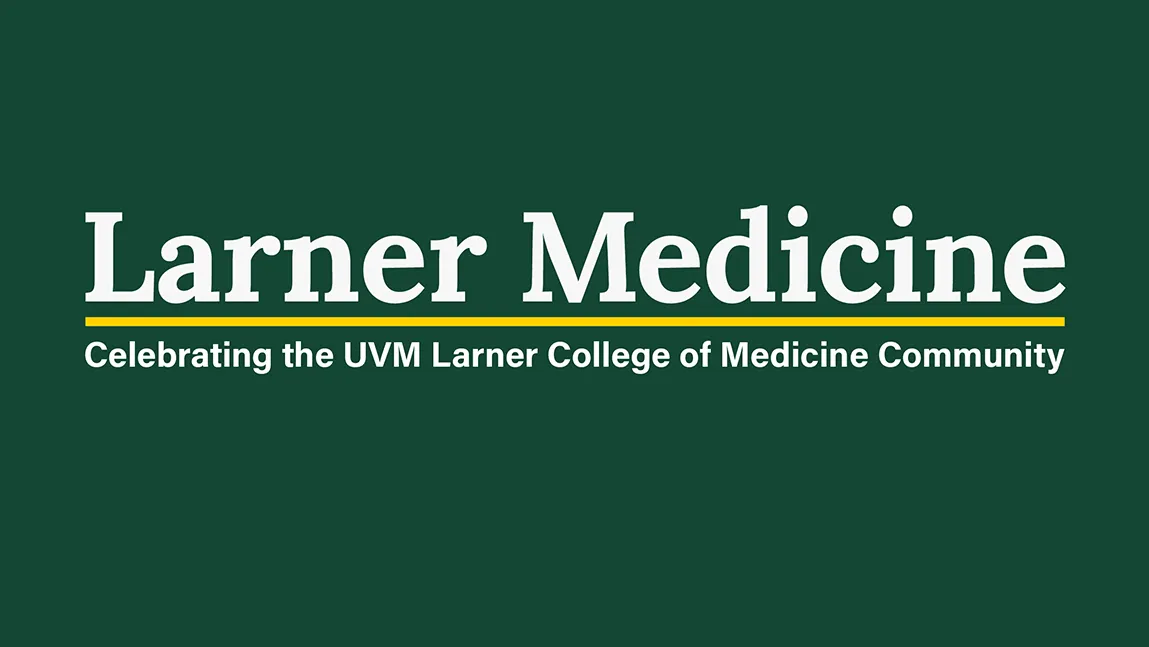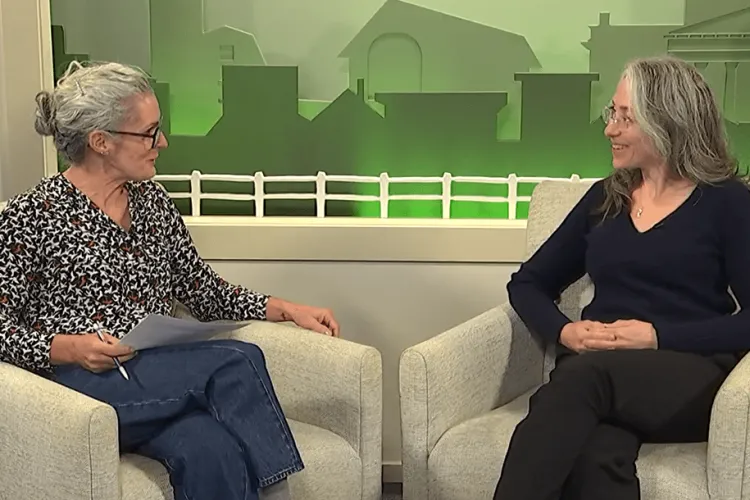
During Lung Cancer Awareness Month, the November 12 episode of the University of Vermont Extension’s Across the Fence program features Beth Zigmund, M.D., director of the UVM Cancer Center’s lung cancer screening program and associate professor of radiology at the Robert Larner, M.D. College of Medicine. Lung cancer is the leading cause of cancer death in the United States, accounting for approximately 20 percent of all cancer-related deaths, with an estimated 124,730 deaths expected in 2025.
Dr. Zigmund explains the importance of lung cancer screening, noting, “If we catch lung cancer when it’s small, we’re looking at easier treatment, lower costs, and better outcomes … Even if the cancer is a later stage, the sooner we know about it, the more we can help.”
Across the Fence is a daily 15-minute television program co-produced by UVM Extension and WCAX-TV informing viewers about activities being conducted by University of Vermont faculty, staff, and students that benefit viewers and their communities. The longest-running farm, home, and community television program in the country, Across the Fence airs weekdays at 12:15 p.m. on WCAX-TV Channel 3.
Watch Dr. Zigmund on Across the Fence
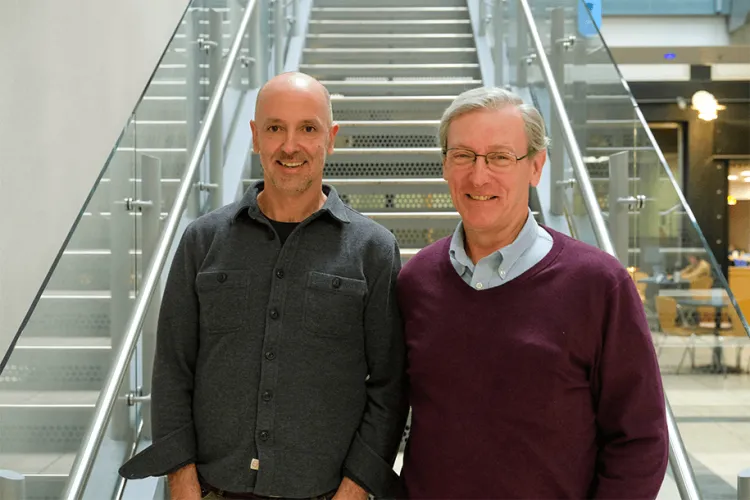
A new R01 grant from the National Institutes of Health awarded to Principal Investigator Michael Previs, Ph.D.’10, and co-investigator Bradley Palmer, Ph.D., associate and assistant professor of molecular physiology and biophysics at the Larner College of Medicine, is helping University of Vermont researchers reshape how scientists understand hypertrophic cardiomyopathy (HCM). One of the most common inherited heart diseases, HCM affects an estimated 3,200 Vermonters.
For decades, HCM was thought to result mainly from problems with how the heart’s muscle fibers contract. But new findings from the Previs Lab suggest a deeper cause: a disruption in how the heart’s molecular “motors” are organized, recycled, and renewed over time. “Every heartbeat depends on a delicate balance of organized chaos inside our heart cells,” Dr. Previs says. “We’re finding that when this balance is disturbed, the heart can grow abnormally thick and stiff.”
By revealing a previously unknown aspect of how heart muscle maintains its structure and strength, this research could pave the way for next-generation therapies for inherited heart disease—bringing new hope to patients and families affected by hypertrophic cardiomyopathy.
Read more about Dr. Previs and Dr. Palmer’s R01 grant
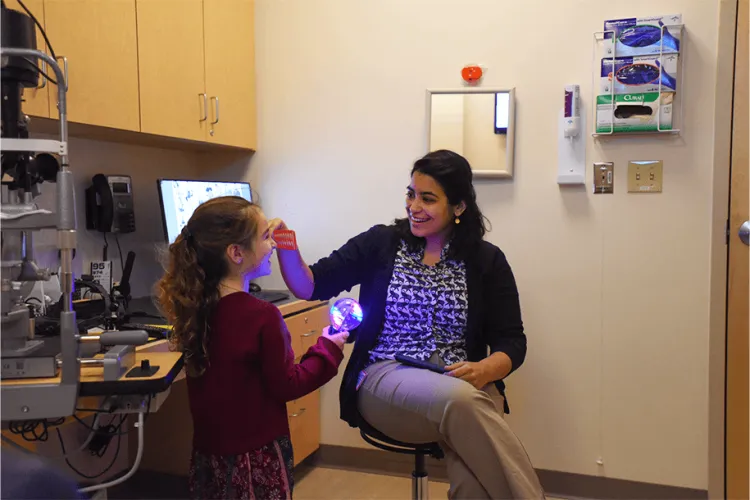
Ophthalmologist Sujata Singh, M.D., assistant professor of surgery at UVM’s Larner College of Medicine, was honored with the Physician Award for Community Service at the 212th Vermont Medical Society (VMS) Annual Meeting in November. In addition to naming Whitney Calkins, M.D., as 2025 Physician of the Year (see Larner Medicine, 11/4/25), VMS feted Dr. Singh—Vermont’s only pediatric ophthalmologist—for providing “outstanding care while championing access to vision services for vulnerable populations. She has led free vision screening programs across Vermont, educated the public through outreach, and co-directed an international school-based vision screening initiative in The Gambia. Her commitment to community service has improved the lives of children and families both locally and globally.”
Singh earned an M.D. from SUNY Upstate Medical University in Syracuse, New York, and completed a pediatric ophthalmology and Strabismus Fellowship at Kellogg Eye Center in Ann Arbor, Michigan, before joining the faculty of the University of Vermont’s Larner College of Medicine.
Hosted jointly by VMS with the American Academy of Pediatrics Vermont Chapter, the Vermont Academy of Family Physicians, and the Vermont Psychiatric Association, the annual meeting is a collaborative event that celebrates the unwavering commitment Vermont clinicians have to their practice and the deep connection VMS members have with each other.
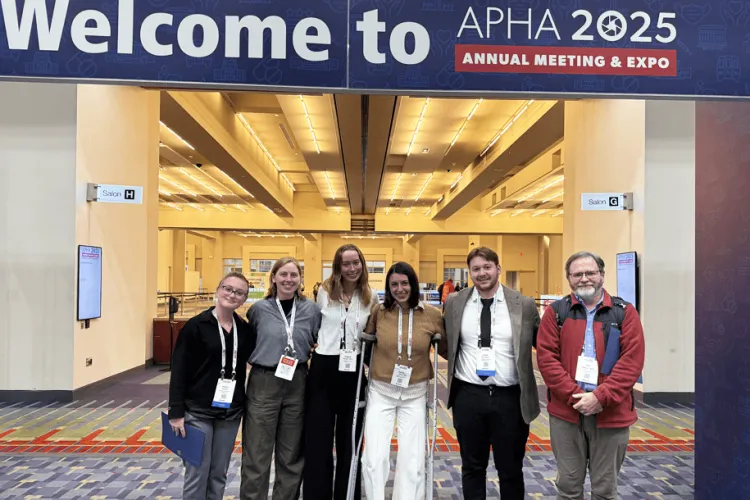
The Division of Public Health at the Larner College of Medicine had a strong showing at the 2025 American Public Health Association (APHA) Annual Meeting & Expo, held November 2–5 in Washington, D.C. Several Culminating Project Experience student groups presented posters at the APHA Conference and the Delta Omega Public Health Exposition, with two receiving Delta Omega student poster awards.
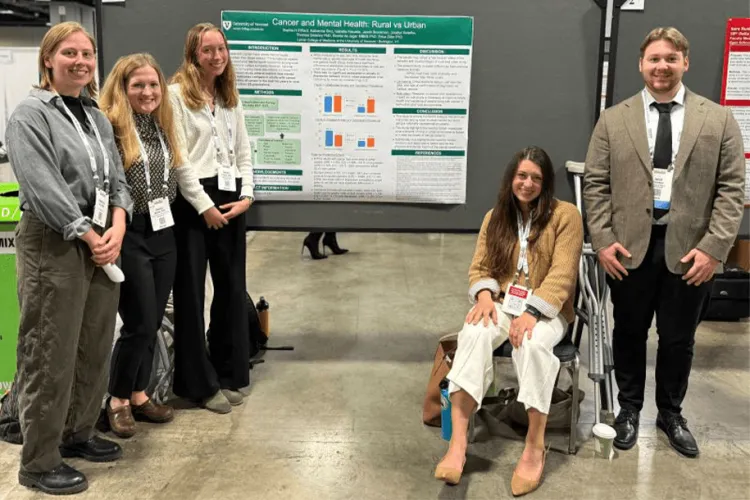
M.P.H.’25 graduate students’ poster presentations at APHA included the following:
- “Physical activity is associated with improved mental health in high-school aged Vermont students” - Adam Matunas presented his team’s work.
Other team members: Meghan O’Connor, Kyle Gadoury, Jazlyn Oviedo, and Cindy Noyes
Faculty Mentor: Tom Delaney, Ph.D.
Faculty Author: Elzerie de Jager, Ph.D., M.B.B.S. - “Comparing the impact of adolescent dating violence and bullying on anxiety among LGBTQ+ and heterosexual-cisgender adolescents in Vermont” - Keelan Boisvert presented her team’s work and accepted a Delta Omega student poster award at APHA for her team.
Other team members: Madeleine Colton, Kylie Williams, Chanc VanWinkle Orzell, and Rebecca Brady.
Mentor: Elizabeth Woods, Ph.D.
Faculty Authors: Drs. de Jager and Delaney - “Cancer and mental health: rural and urban”
This team also received a Delta Omega student poster award at APHA.
Team members: Jocelyn Botelho, Isabelle Fluette, Sophie Piffard, Kate Sinz, and Jacob Brookman
Mentor: Erika Ziller, Ph.D.
Faculty Authors: Drs. de Jager and Delaney
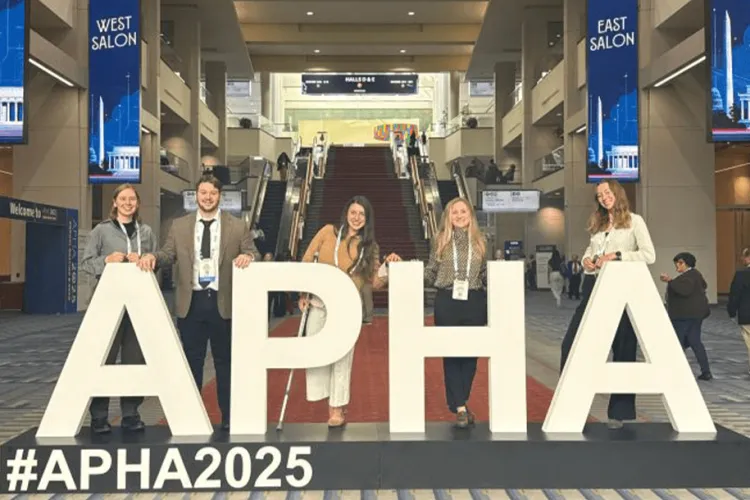
Larner Alum Phipps Elected to National Academy of Medicine
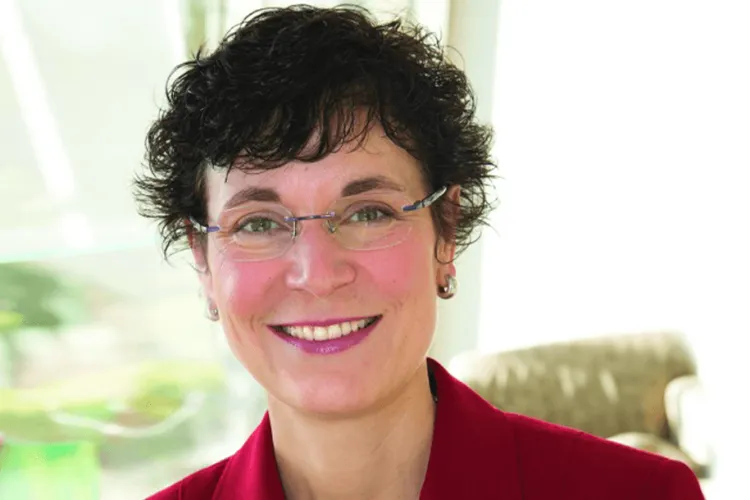
UVM College of Medicine alumna and 2025 commencement speaker Maureen Phipps, M.D.’94, M.P.H., professor emerita of obstetrics and gynecology at the Warren Alpert Medical School of Brown University and chief executive officer of MGP Strategies, LLC, in Maine, was recently elected to the National Academy of Medicine (NAM) in recognition of her leadership in women’s health.
Dr. Phipps earned a place on the prestigious list “for her visionary academic and executive leadership in women’s health, and her transformative contributions to pressing health care challenges across state, national, and global contexts,” NAM wrote in a news release. Phipps is widely recognized for advancing reproductive and maternal health, championing evidence-based care, and informing policy solutions through trusted leadership, thoughtful research, and strategic collaboration. NAM also cited Phipps’s research focus on improving outcomes for vulnerable or under-resourced women and families.
“I feel deeply honored to join the National Academy of Medicine and profoundly grateful to the University of Vermont, where my journey began,” said Dr. Phipps. “The values and collaborative spirit I encountered there continue to shape my leadership and fuel my commitment to driving meaningful change.”
Membership in NAM—considered one of the highest honors in the fields of health and medicine—recognizes individuals who have demonstrated outstanding professional achievement and commitment to service. Elected on October 20, Phipps joins Larner professor and chair of neurological sciences Peter Calabresi, M.D., as a newly elected regular member.
Established in 1970 by the National Academy of Sciences, NAM addresses critical issues in health, science, medicine, and related policy and inspires positive actions across sectors and works to provide independent, objective analysis and advice to the nation and conduct other activities to solve complex problems and inform public policy decisions.
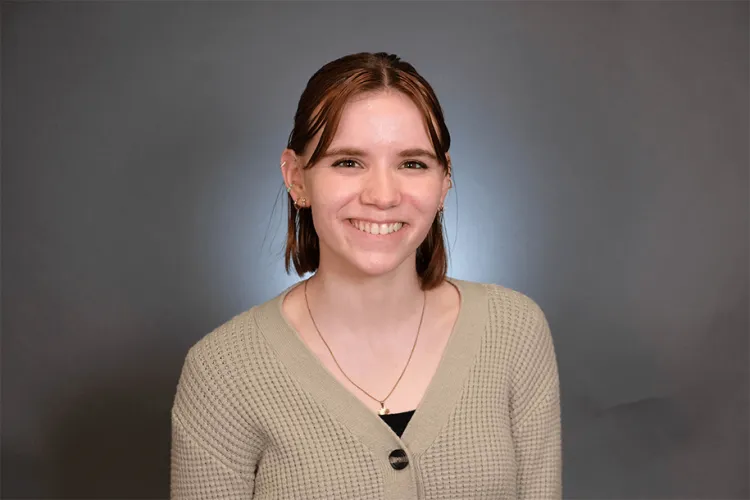
Graduate trainee Maggie Trout, a Ph.D. student working in the Stafford Lab in the Department of Neurological Sciences, has been awarded a Pre-Doctoral Fellowship from the ChadTough Defeat DIPG Foundation. This prestigious award will empower Trout to extend the boundaries of diffuse intrinsic pontine glioma (DIPG) research in search of new potential treatment options, bringing hope to families affected by this rare but devastating pediatric brain cancer.
Read a Q&A with Maggie Trout about how this fellowship will impact her research
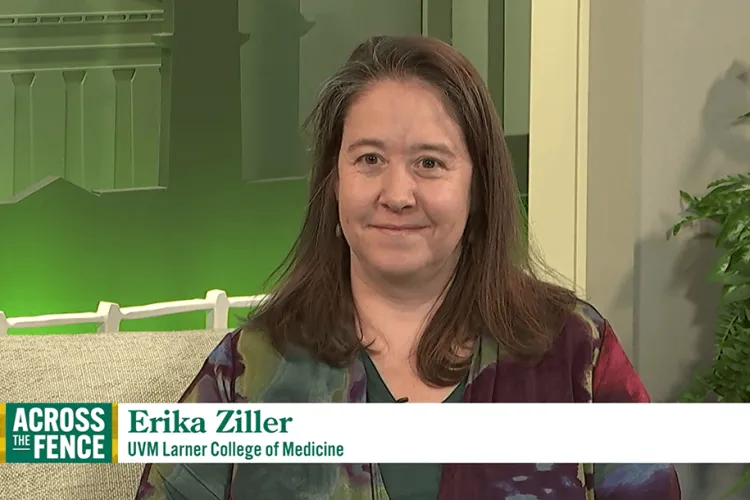
For National Rural Health Day, celebrated annually on the third Thursday of November, the University of Vermont Extension’s Across the Fence program features Erika Ziller, Ph.D., associate professor of medicine, director of the Health Services Research Center, and director of the Northeast Rural Health Research Center—who knows firsthand why it’s harder to be healthy in rural Vermont.
Dr. Ziller speaks with program host Amy Finley about her own family’s experience with unaffordable health insurance and how this lived experience motivated her to pursue a career focused on health care policy. Ziller eventually joined the faculty at the Larner College of Medicine, where the college’s commitment to policy and education initiatives around rural health resonated with her goals and values.
As an example, Ziller notes that Larner has committed to devoting resources and energy into creating a new program director around rural medical education. She adds, “They also are working to refine their curriculum to make sure the physicians they are training are equipped to go out and practice in rural places effectively, prepared to make a difference in rural communities across Vermont.”
Read more about Dr. Ziller’s interview on ‘Across the Fence’
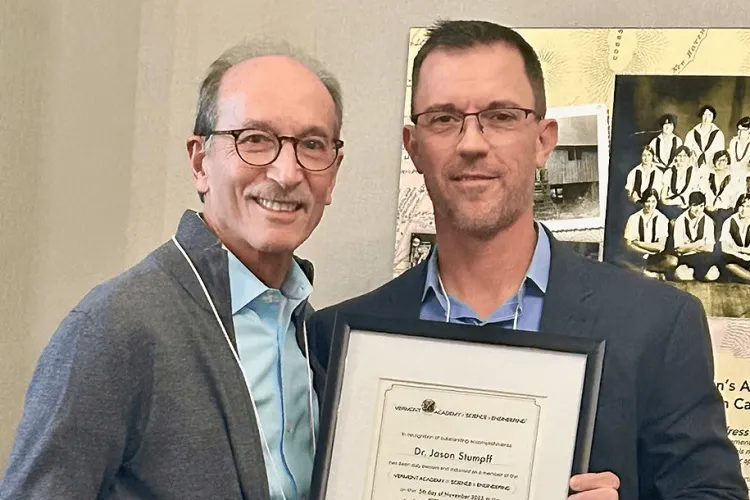
Larner Professor of Molecular Physiology and Biophysics and University of Vermont Cancer Center Program Co-Leader Jason Stumpff, Ph.D., was inducted into the prestigious Vermont Academy of Science and Engineering (VASE) on November 5, 2025. Membership in VASE honors individuals with “outstanding achievements and contributions in the broadly defined areas of science and/or engineering.”
Dr. Stumpff graduated with a B.S. in biology from Eckerd College in 1998, received his Ph.D. in molecular, cellular, and developmental biology from the University of Colorado–Boulder in 2004, and was a postdoctoral fellow at the University of Washington–Seattle from 2005 to 2011. He joined the University of Vermont faculty as an assistant professor in the Department of Molecular Physiology and Biophysics in 2011 and was promoted to associate professor in 2019 and professor in 2024. Stumpff also is a member of the UVM Cancer Center, where he is a co-leader of the Cancer Host and Environment program. His research—which has been published in top journals in the field of cell and developmental biology as primary research papers, reviews, and book chapters—focuses on understanding chromosome organization and movements during cell division.
Chartered by the State of Vermont in 1995, VASE has as its mission “to recognize outstanding achievement and contributions in the broadly defined areas of science and/or engineering, to foster a deeper understanding and promote discourse on scientific and technical matters among the citizens of the State of Vermont, and to provide expert and impartial technical advice to the people and the government of the State of Vermont.” VASE administers a slate of grants and awards to foster science and technical fields in the Green Mountain State.
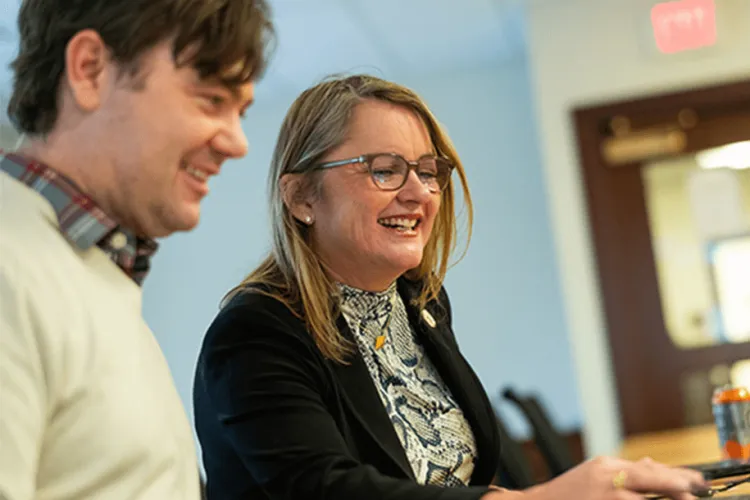
Impactful research by scientists at the University of Vermont has identified simple blood tests that can predict a person’s risk for future cognitive decline and dementia—long before people notice memory issues. These blood tests use an emerging technology able to detect leakage of tiny amounts of proteins, called biomarkers, from damaged brain cells. The findings, published in Neurology, the journal of the American Academy of Neurology, show that brain changes happen decades before the onset of symptoms.
“Findings from this research provide new knowledge that might allow us to help people avoid Alzheimer’s disease and related dementias as they age,” says study co-author Nels Olson, Ph.D., M.P.H., associate professor of pathology and laboratory medicine at the University of Vermont Larner College of Medicine. Olson collaborates closely with Vermont Center for Cardiovascular and Brain Health Co-Director Mary Cushman, M.D., M.Sc., University Distinguished Professor of Medicine, who is senior author of this study.
Read more about Dr. Olson and Dr. Cushman’s neurobiomarkers research
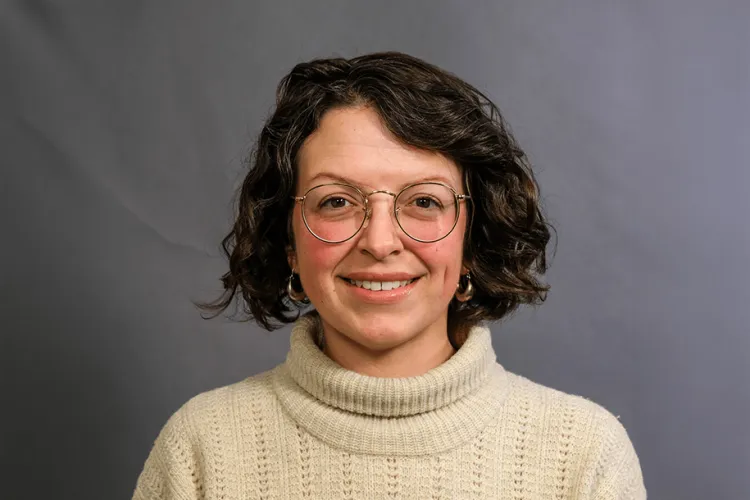
Larner Assistant Professor of Neurological Sciences Estelle Spear Bishop, Ph.D.’17, is a co-author on a study recently published in the journal Nature titled “High-density soft bioelectronic fibres for multimodal sensing and stimulation.” Dr. Bishop engaged in the research during postdoctoral work at the Stanford University School of Medicine prior to joining UVM in 2022; her studies were completed in part using software custom written by Grant Hennig, Ph.D., assistant professor of pharmacology at the University of Vermont.
Against a backdrop of an increasing demand for multimodal sensing and stimulation bioelectronic fibers for both research and clinical applications, the research team developed soft bioelectronic fibers that do not exhibit the limitations—such as high rigidity and limited functionality—of one-dimensional fiber devices. These soft bioelectronic fibers offer a powerful platform for minimally invasive implantable electronics, where diverse sensing and stimulation functionalities can be effectively integrated.
Read more about Dr. Bishop’s research
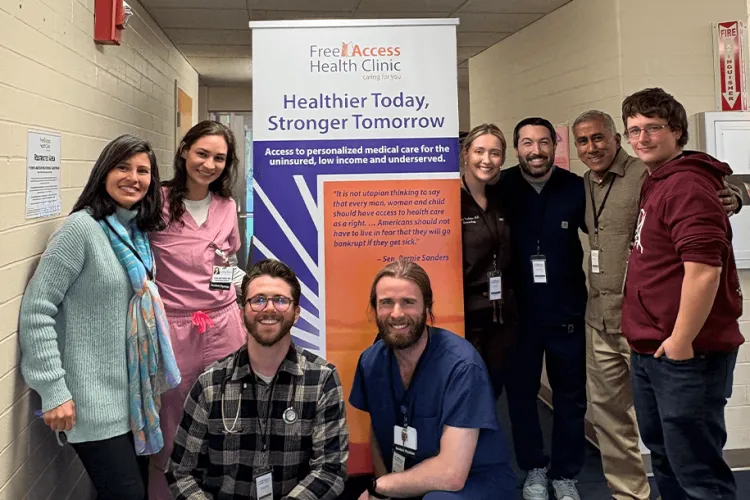
On October 18, Brandon Lawson of the Larner medical Class of 2029 volunteered with UVM Medical Center dermatologists Keith Morley, M.D., Santana VanDyke, M.D., Taylor Pong, M.D., and Mark Derbyshire, M.D., at South Burlington’s Free Access Health Clinic, where they provided free dermatology services to members of the community.
The Free Access Health Clinic is committed to bridging gaps in health care access by providing free medical care to uninsured patients (individuals without health insurance who struggle to access necessary medical care) and underserved patients (those facing challenges beyond financial hardship, such as provider shortages, transportation difficulties, or other barriers to care). All visits are by appointment only; patients must have an appointment to be seen, with rotating specialties available Saturdays 8:30 a.m.–12:30 p.m. at the Islamic Society of Vermont on Swift Street.
View all Accolades & Accomplishments in the Larner Medicine newsletter archives
